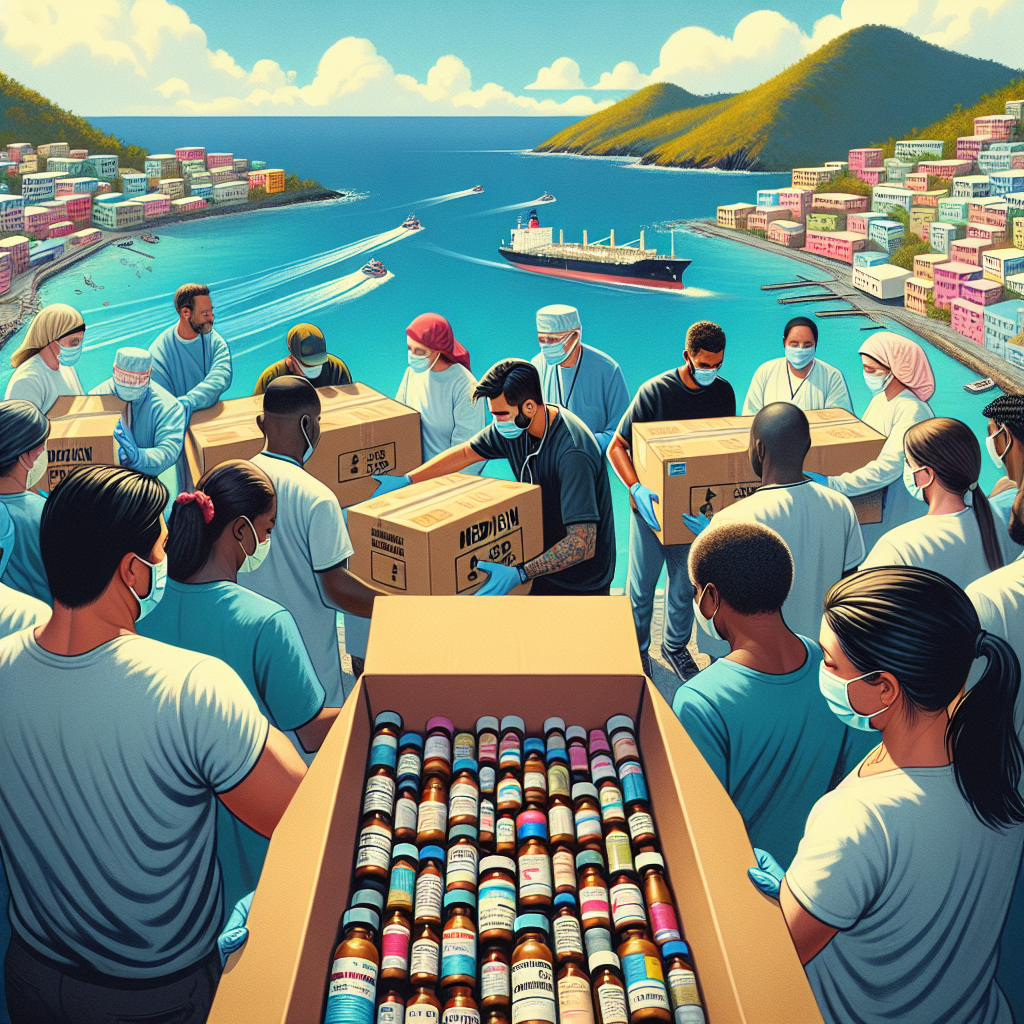Import unapproved medicine into U.S. Virgin Islands
Importing medicines into U.S. Virgin Islands
 View English version
View English version
Importing Life-Saving Medicine into the U.S. Virgin Islands under the Federal Food, Drug, and Cosmetic Act (1938)
The Federal Food, Drug, and Cosmetic Act (FD&C Act) of 1938 establishes the legal framework for the regulation of food, drugs, cosmetics, and medical devices in the United States, including territories such as the U.S. Virgin Islands. When it comes to importing medicine for personal use, particularly unapproved or unavailable life-saving medications, specific requirements and policies must be followed to ensure compliance with federal law.
Understanding the FD&C Act's Stance on Unapproved Medicines
Under the FD&C Act, the importation of unapproved new drugs into the United States is generally prohibited. An unapproved drug is one that has not been approved by the U.S. Food and Drug Administration (FDA) for marketing in the United States. This includes drugs that are legally available in other countries but have not undergone FDA evaluation for safety and efficacy.
However, recognizing the needs of individuals who may require medications not available domestically, the FDA has established enforcement policies that allow for the importation of certain unapproved drugs for personal use under specific circumstances.
The FDA's Personal Importation Policy
The FDA's Personal Importation Policy outlines the conditions under which individuals may import unapproved drugs for personal use. While this policy does not grant legal authorization, it represents circumstances where the FDA may exercise discretion and choose not to enforce the prohibition against importation. The key criteria include:
- The drug is intended for personal use and not for commercial distribution.
- The quantity is generally not more than a three-month supply.
- The product is not considered to represent an unreasonable risk.
- There is no known commercialization or promotion to U.S. residents by those involved in distributing the product.
- The drug is for the treatment of a serious condition for which effective treatment may not be available domestically.
Steps Required for Importing Unapproved Life-Saving Medicine
For individuals in the U.S. Virgin Islands seeking to import life-saving medicine that is unapproved or unavailable domestically, the following steps should be taken to comply with the FD&C Act and FDA policies:
1. Obtain a Valid Prescription or Medical Documentation
Secure a prescription or a statement from a licensed physician indicating that the drug is necessary for personal use to treat a serious condition. The documentation should affirm that:
- The medicine is essential for the individual's health.
- Alternative treatments available in the United States have been ineffective or are unsuitable.
- The unapproved drug does not pose an unreasonable risk.
2. Ensure the Quantity Does Not Exceed a Three-Month Supply
Limiting the importation to no more than a three-month supply demonstrates that the medicine is for personal use and aligns with the FDA's guidelines for enforcement discretion.
3. Provide a Clear Declaration at Customs
Upon arrival at a U.S. port of entry, including ports in the U.S. Virgin Islands, declare the medication to U.S. Customs and Border Protection (CBP) officers. Present the prescription or medical documentation and explain the necessity of the medication for personal use.
4. Be Prepared for Possible Detainment of the Medicine
CBP officers, in coordination with the FDA, have the authority to detain and refuse the importation of unapproved drugs. While the FDA may exercise discretion, there is no guarantee that the medication will be allowed entry. Providing comprehensive documentation increases the likelihood of a favorable decision.
Considerations and Potential Challenges
Risk Assessment of the Medicine
The FDA considers whether the unapproved medicine represents an unreasonable risk. Medicines that are counterfeit, contaminated, or mislabeled may be refused entry. It is crucial to ensure that the medication is obtained from reputable sources.
Legal Implications
Importing unapproved drugs carries legal risks. While enforcement discretion may apply, importing prohibited substances can result in penalties. Consulting legal counsel or healthcare providers familiar with FDA regulations is advisable.
Alternatives to Personal Importation
Expanded Access Programs
The FDA's Expanded Access Program, also known as Compassionate Use, allows patients with serious or life-threatening conditions to obtain investigational drugs outside of clinical trials when no comparable alternative is available. Physicians can request access on behalf of patients.
More information can be found on the FDA's Expanded Access webpage: FDA Expanded Access.
Clinical Trials
Participation in clinical trials may provide access to new treatments. The FDA's Clinical Trials database provides information on ongoing studies: ClinicalTrials.gov.
Role of Healthcare Providers
Healthcare providers play a crucial role in advising patients on treatment options. They can assist in determining if an appropriate alternative medicine is available domestically or if pursuing importation is necessary. Providers can also help navigate the processes for Expanded Access or clinical trial enrollment.
Conclusion
Importing unapproved or unavailable life-saving medicine into the U.S. Virgin Islands under the FD&C Act requires careful adherence to FDA policies. While the law generally prohibits such importation, the FDA's Personal Importation Policy offers a pathway under specific conditions. Individuals must ensure they have proper medical documentation, limit quantities to personal use, and comply with all regulatory requirements. Consulting healthcare professionals and understanding the potential risks and challenges are essential steps in this process.
References
- U.S. Food and Drug Administration. "Federal Food, Drug, and Cosmetic Act (FD&C Act)."
- U.S. Food and Drug Administration. "Personal Importation."
- U.S. Food and Drug Administration. "Expanded Access."
- U.S. Customs and Border Protection. "Declaring Medicines."
- National Institutes of Health. "ClinicalTrials.gov."

